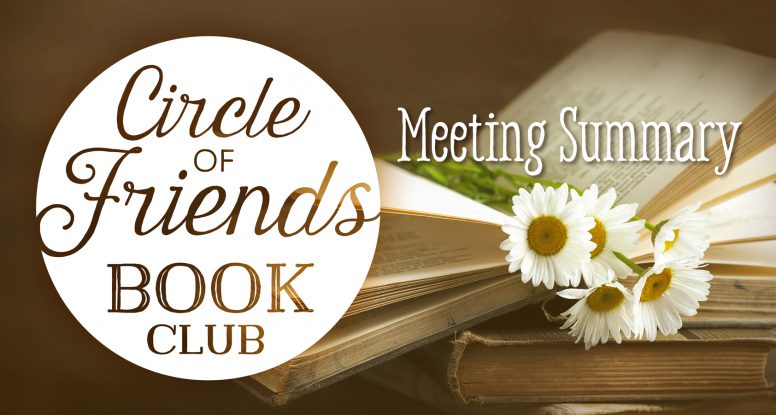
Circle of Friends Book Club meeting summary for September 2016
September 14, 2016
Last month’s meeting on September 14, 2016, included engaging discussions of four books presented by individual members. The first book presented was Egypt in Africa by Theodore Celenko. It explores the nature of Egyptian art as it relates to the rest of the African continent, and draws parallels between the history of art in Egypt and that of other nations throughout Africa. Although art is the focus in this extensively illustrated book, it also explores connections through the views of many individual contributors with specialties in a variety of areas including physical anthropology, archeology, cultural studies, as well as art history.
The next discussion included two books: The Queen’s Bush Settlement: Black Pioneers 1839-1865 by Linda Brown-Kubisch, and Elijah of Buxton by Christopher Paul Curtis. These books reference settlements in Ontario, Canada made up predominantly of escaped slaves who came on the Underground Railroad before the Civil War. The first is non-fiction, and the second a young adult fiction selection. These books engendered a lively discussion of many little-known aspects of life for the black pioneers who made this journey, and there were even a few personal connections to members of the group.
Next up for discussion was a non-fiction book titled Speaking Christian by Marcus J. Borg. This book addresses the historical context for many commonly-used Christian terms, and the author explains his ideas about how Christianity appears to have lost some of the historical meanings in favor of ideas and associations developed in more modern times. Discussion of a few of these specifically led to a far-ranging conversation about religious traditions and ideas, as well as history and connections to individual beliefs and organized religion.
The last book brought to the group by a member was The Time Traveler’s Wife by Audrey Niffenegger. This book was presented as not only a very original and engaging story, but also as a catalyst for thinking about all sorts of ideas, including time, how people are called to deal with all sorts of challenging and unexpected situations, and the nature of love. The suggestion was made to include this as a group selection in the future.
Although the books presented represented a wide variety of topics and ideas, they all appeared of interest to those who presented and to the rest of the group. We look forward to an in-depth discussion of next month’s book 1491 by Charles C. Mann.
